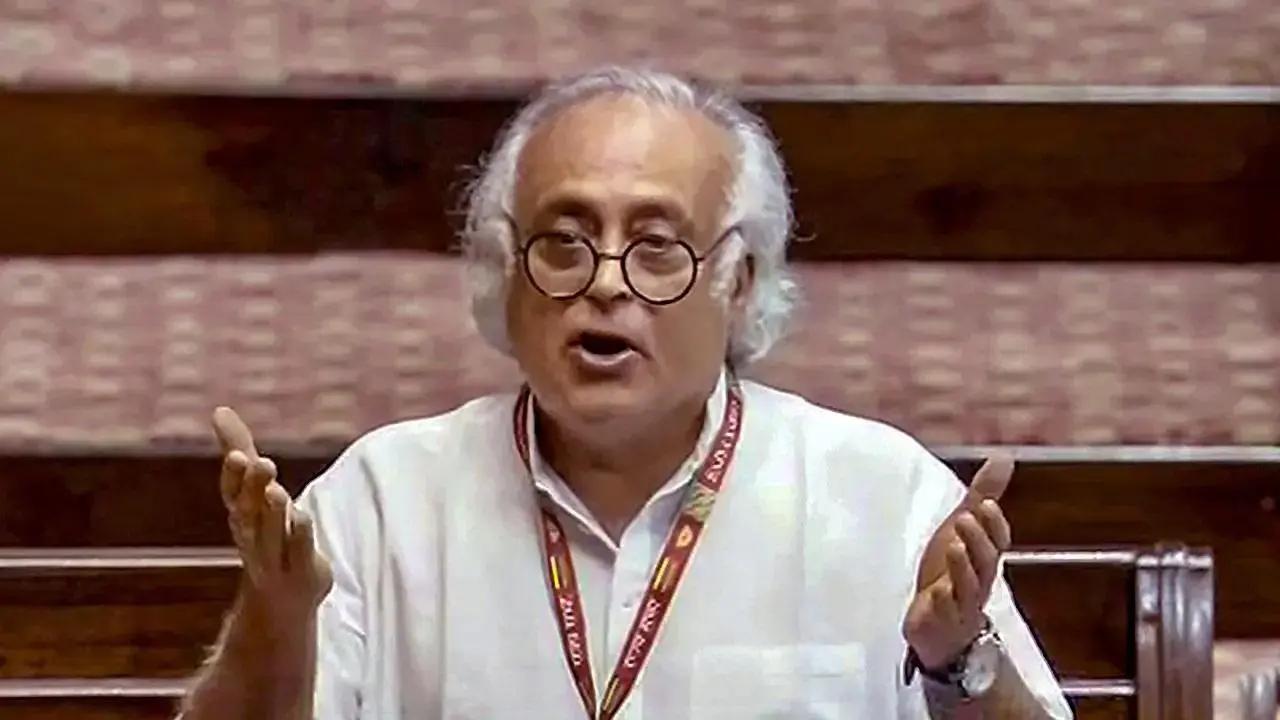Congress has regularly condemned the government's economic policies, notably those involving unemployment and price increases

Jairam Ramesh. File Pic
The Congress attacked the administration on Friday, claiming that inequality, wage stagnation, and inflation are "structurally corrosive" to India's long-term growth prospects. The party encouraged the government to confront the growing financialisation of the economy, reported PTI.
ADVERTISEMENT
According to the report, Congress General Secretary for Communications Jairam Ramesh stated that raising private investment as a percentage of GDP is critical for long-term economic growth. However, he stated that this percentage has decreased from 33.4 per cent between 2004 and 2014 to 28.7 per cent from 2014 to 2023.
Ramesh mentioned an article by a public finance economist, which he said raised more issues. According to the article, passive income (including rent, dividends, and capital gains) now accounts for 24 per cent of total reported income, up from 16 per cent in 2016-17, the report added.
Reportedly, The corporate sector's share of passive income has increased from 16.6 per cent in 2016-17 to 30.7 per cent in 2023-24, demonstrating a preference for financial investments over productivity-boosting physical investments. This shift, according to Ramesh, is attributable to low demand for products and services in the post-Covid recovery, which has mostly left the poor and middle classes behind.
"For the corporate sector, the share of passive income (income outside of operating profits) increased from 16.6 per cent in 2016-17 to 30.7 per cent in 2023-24. This shift in capital gains indicates a shift in corporate preferences in favour of financial investments rather than productivity-raising physical investments," Ramesh said.
He additionally said, "The cause of this shift away from physical investments is the muted demand for goods and services in the post-Covid recovery, which has largely left the poor and the middle classes behind."
Ramesh said, "Inequality, wage stagnation, and inflation are not just political issues -- they are structurally corrosive to India's long-term growth prospects."
"If not the opposition, the government must listen to its own chief economic advisor, who has himself raised alarm over the growing financialisation of the Indian economy," he said per the PTI report.
Congress has regularly condemned the government's economic policies, notably those involving unemployment and price increases. Earlier this month, the party said that the previous decade has seen "highly detrimental economic trends," adding that while the monsoon has passed, "three dark clouds" - poor private investment, slow manufacturing, and declining real wages - remain over the Indian economy.
 Subscribe today by clicking the link and stay updated with the latest news!" Click here!
Subscribe today by clicking the link and stay updated with the latest news!" Click here!







